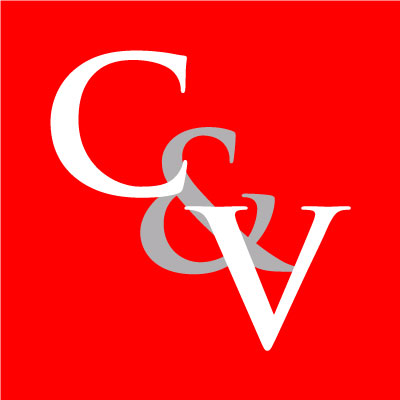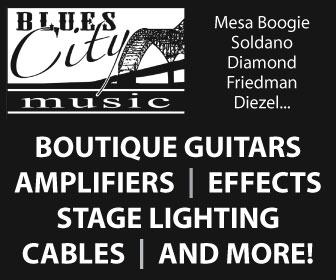Beyond the Palace
Asbury Park, one of America's best-known rock and roll music scenes, finally has its story told in the new book "Beyond The Palace" by Gary Wien.
ASBURY PARK'S MUSIC HISTORY COMES ALIVE IN NEW BOOK
ASBURY PARK, NJ (June 5, 2003) - Asbury Park, one of America's best-known rock and roll music scenes, finally has its story told in the new book Beyond The Palace by Gary Wien. The struggling city along the Jersey Shore has long been known as the place where artists like Bruce Springsteen and Jon Bon Jovi got started but its legacy goes much further.
Beyond The Palace takes you on a ride through the city's long and illustrious music history; from the Upstage Club where musicians like Bruce Springsteen, Billy Chinnock, David Sancious and Southside Johnny used to jam all night to early clubs like The Student Prince and Sunshine In; from the legendary Stone Pony and Fastlane to alternative clubs like the Green Parrot, T-Birds Cafe and The Saint. The book contains interviews with over 40 artists and features over 70 rare and never before seen photographs, many from the world-famous photographer Debra L. Rothenberg.
"This is really the first comprehensive look at the entire Asbury Park music scene," said the author. "There are a lot of books out there that focus solely on Bruce Springsteen or Bon Jovi, but Beyond The Palace also features the artists that had good careers but didn't sell millions of records. It covers local rock and roll history from the 60s to today, including a look at artists like Matt Witte, Danny White and DeSol that prove the Asbury Park music scene is alive and well."
Beyond The Palace takes you inside the scene like never before. You'll hear the stories right from the artists themselves. It's a look at drugs, sex and booze; bands that made it big, artists on the rise, and those that just missed the mark. It brings you inside the music industry from how bands fight to get signed to how things can fall apart overnight. But most of all, it shows how artists don't have to sell millions of records to be remembered.
The book is currently available worldwide from Trafford Publishing (www.trafford.com) or from the book's official website at www.AsburyMusic.com. Gary Wien is a life-long resident of the Jersey Shore; this is his first published book.
Beyond The Palace by Gary Wien
Publisher: Trafford Publishing
Number of Pages: 400
Format: paperback only
List price: $26
ISBN: 1412003148
Book Excerpt
Chapter 13: SOUTHSIDE JOHNNY & the ASBURY JUKES
Southside Johnny & the Asbury Jukes was the first band to make it from Asbury Park after the success of Born To Run by Bruce Springsteen. Originally the house band at the Stone Pony, the Jukes went national with the release of I Don't Want To Go Home in 1976. A record release party was held at the Pony with the band's live show syndicated on nine radio stations across the country.
The band played rhythm & blues music with the addition of a large horn section. Early records were produced by Steven Van Zandt and contained songs written by Bruce Springsteen. The band's third record, Hearts Of Stone, was once named one of the Top-100 albums of the last 20 years by Rolling Stone Magazine.
Southside Johnny & the Asbury Jukes have been touring and recording music for over 25 years. Through the years, they have built an extremely large fanbase around the world. Many of their fans have made trips to Asbury Park to see the town where the band got its start. Several hundred fans got together in 2002 for the first ever Jukestock - a Southside Johnny & the Asbury Jukes fan convention held at a hotel in nearby Tinton Falls. Later that year, the band released its latest record, Going To Jukesville.
I caught up with Southside Johnny during the band's annual summer shows in Point Pleasant. We met on the boardwalk in Asbury Park. It was a beautiful beach day, but the beach was empty. It was almost too quiet for a resort town, but a perfect time to talk about Asbury's past.
Tell me about the early days of Asbury Park.
Well, we weren't making any money, but there was an instinctual knowledge that what was happening with the Upstage Club, Student Prince, Stone Pony and all the other clubs and all the bands - all the jamming was just great fun and not everybody gets a chance to do this.
Nobody was thinking about getting deals. Bruce was still trying to figure out which way he wanted to jump, you know. He was writing songs way before anyone else and he had all those bands: Child, Earth and Steel Mill. He was just trying to figure it all out. Eventually he did. And I think we all were trying to find our way, but not to make earth shaking records but more to make it so we could have a career so we could continue. And that's a very difficult proposition. I know from my own personal experience with my father. I didn't know whether I had the stamina to do it, so I never took it that seriously as far as a career. But I took it seriously as I wanted to get it right. I guess that kind of tenacity stood me in good stead. But in the beginning it was just a laugh.
"Band of The Week" we used to call it. Garry or Steven or me would put the band up and we'd pick whoever was available. Big Bobby or Vini Lopez. Garry was usually the bass player but Vinnie Roslin was there and there was other guys. And there's a lot of guys whose names I don't even remember that I was in bands with. From a perspective of people who didn't go through it, it seemed like this crazy, verdant scene of wild experimentation and open arm stuff, but it really wasn't. It was a struggle to get anybody to do anything.
There's a lot of people that remember you playing bass back at the Upstage. How long did you play bass guitar?
I don't really remember. I was kind of forced into it. Garry played bass so I bought one. Sonny Kenn said come and sing in my band, which I never thought of doing really. He wanted to play blues after playing rock and roll for so many years. And he knew I played harp and sang because I used to hang around with those guys. But I never thought of being in a band or anything, just personal amusement. And then one time he said we need a bass player you're going to have to learn how to play bass.
So I bought a bass and Garry helped me out a bit. But it's very difficult to sing and play bass at the same time and I never really enjoyed it. I enjoyed the attitude of it. I love playing bass and I love singing, but doing them both together was just impossible. And so later, we got a bass player. We got this kid like 16 years old. He didn't have any idea of the songs we were playing we had to show him everything. But it's fun and that's the basic idea, it was fun. It wasn't this huge ambition like I've got to make it.
How did the Jukes come about?
There was a band called Blackberry Booze Band and that was David Myers and Paul Dinkler and Kenny Cutler. So these guys had this band. They did a lot of just jamming, you know. It was a four piece guitar/bass. A guy named Paul Greene, who was a friend of mine, was a harmonica player but he didn't want to sing he just wanted to play harp. And I was at a loose end. I was playing in a band called Bank Street Blues Band, which had a guy named Stu and he wanted to do all the singing and he just wanted a harmonica player. So I got to sing like two songs a night, and, of course, that's not what I wanted. As much as I like playing blues harp, I really wanted to sing. So Paul Greene and I one day decided, "This is stupid, we're in the wrong bands." So we decided to switch and we didn't even tell the other bands because he showed for one gig and I showed up for the other gig.
From "Beyond the Palace," by Gary Wien. Trafford Publishing. Used by permission.










